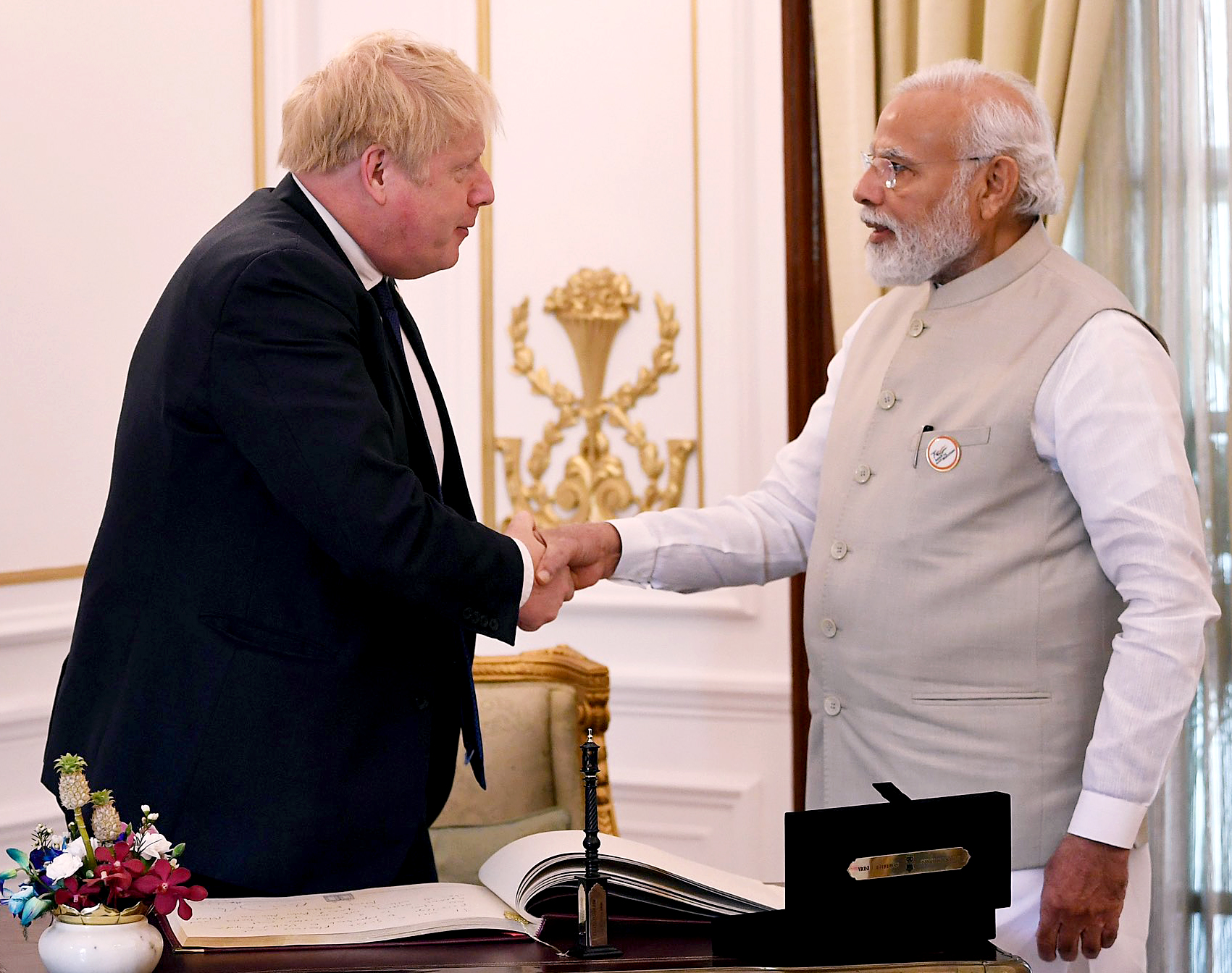Diplomats explore the possibility of an AUKUS-Quad coordination to deal with Beijing.
New Delhi: UK Prime Minister Boris Johnson and Prime Minister Narendra Modi during bilateral talks on Friday elaborately discussed China’s assertiveness, stressing on the need to enhance joint cooperation to deal with the challenge posed by Beijing in the Indo-Pacific region and also in other areas. Sources told The Sunday Guardian that the foreign ministers of India and the UK will meet soon to have a discussion on the issues related to the Indo-Pacific in what will take the agenda set by the two Premiers further.
“There was a convergence of concerns about China’s assertiveness when the two leaders interacted on Friday. The Chinese aggression along the Line of Actual Control also figured during the bilateral consultations,” said a highly-placed source. “At the diplomatic exchanges, the possibility was also explored about how AUKUS could work as a supplement to Quad in an attempt to check China,” sources said. The AUKUS comprises Australia, the United Kingdom and the United States. What is significant is that Australia and the US are also in the Quad with India and Japan. “With the formation of groups like these, both platforms can coordinate better,” says a diplomat.
Indian diplomats refer to the recent development
The joint statement referred to the free, open and rules-based Indo-Pacific in what was a strong message to China. But Boris Johnson, after the talks with PM Modi, came out much harsher against Beijing when he said his country “always condemned actions of autocratic governments and breaches in territorial integrity”. He was answering a question on whether he condemns China’s territorial ambitions and its behaviour. The question was in the context of Chinese aggression towards India particularly at the Line of Actual Control.
“In fact, PM Johnson had been given enough inputs based on evidence establishing how China’s aggressive behaviour is growing not only near Indian borders but also in the Indian Ocean and the other Indo-Pacific regions,” says an official.
With a clear message to China, the joint statement said it all: “The two Prime Ministers shared their vision of an open, free, inclusive and rules-based Indo-Pacific region in which countries are free from military, economic, and political coercion. They committed to work together with partners and relevant regional organisations who share this vision, to promote respect for territorial integrity and sovereignty, rule of law, transparency, freedom of navigation and overflight, the centrality of the UN Convention on the Law of the Sea, unimpeded lawful commerce, and peaceful resolution of disputes. They agreed that conflict anywhere posed a threat to freedom everywhere, and reiterated the vital importance of the Indo-Pacific region in the current global context.”
Sources said that External Affairs Minister S, Jaishankar and his British counterpart Liz Truss will soon sit together to carry the talks forward on key strategic issues including the Chinese aggression. There will be more active British presence in the Indo-Pacific region through its maritime deployments and there will be more sharing of military technology with India in future, sources privy to high level diplomatic engagements between India and UK told this newspaper. This will be done keeping in view China’s belligerence, sources added.
What Johnson said after meeting with PM Modi highlighted Britain’s priority in the Indo-Pacific vis-à-vis the Chinese factor and also India’s position in this context. Johnson said, “India is a rising Asian power and Britain’s big partner in the Indo-Pacific.”

